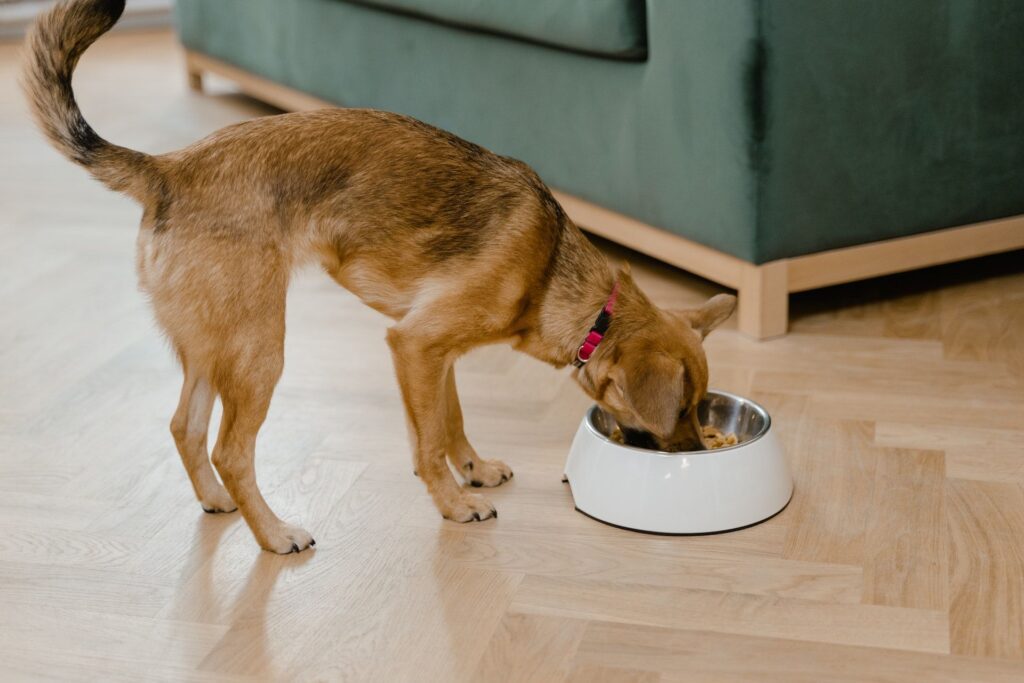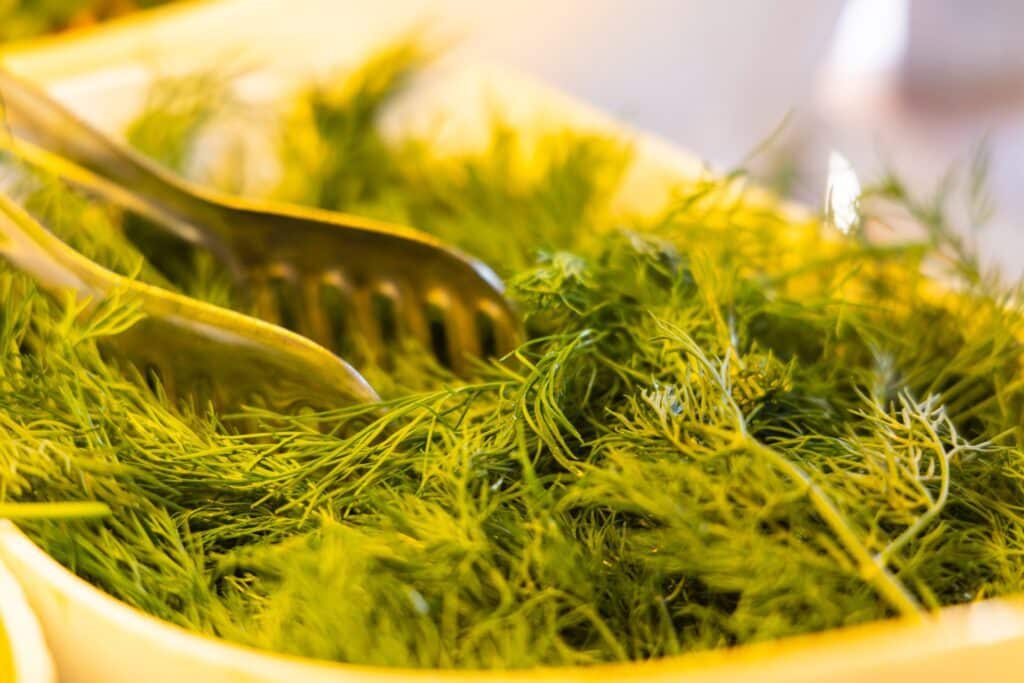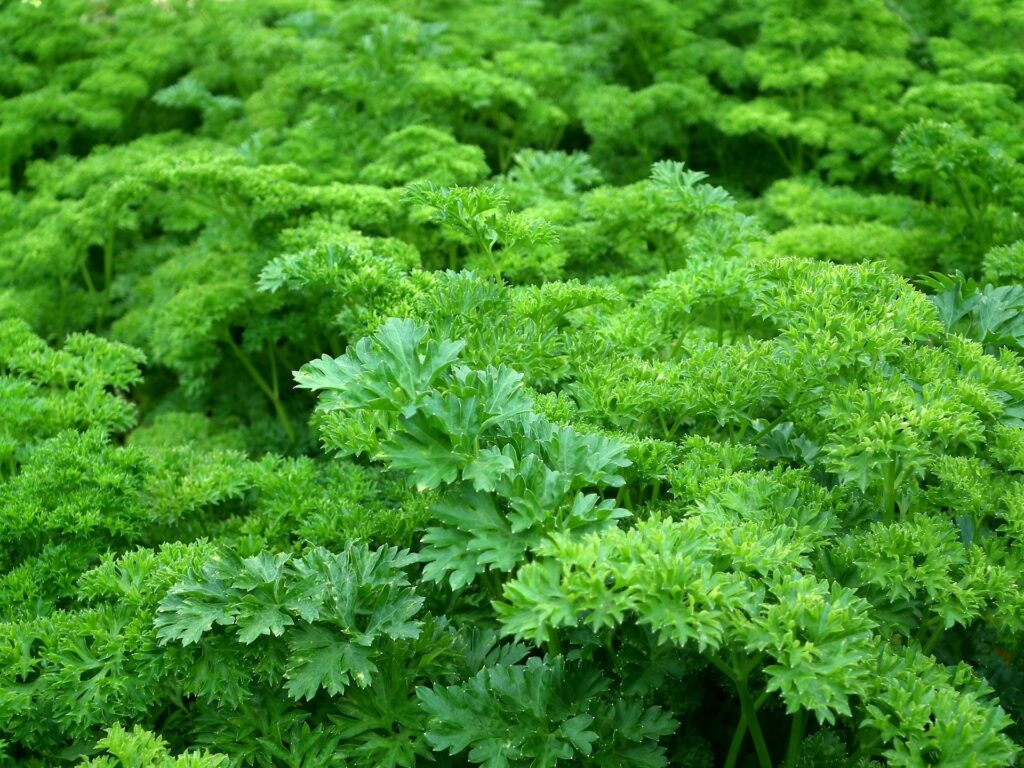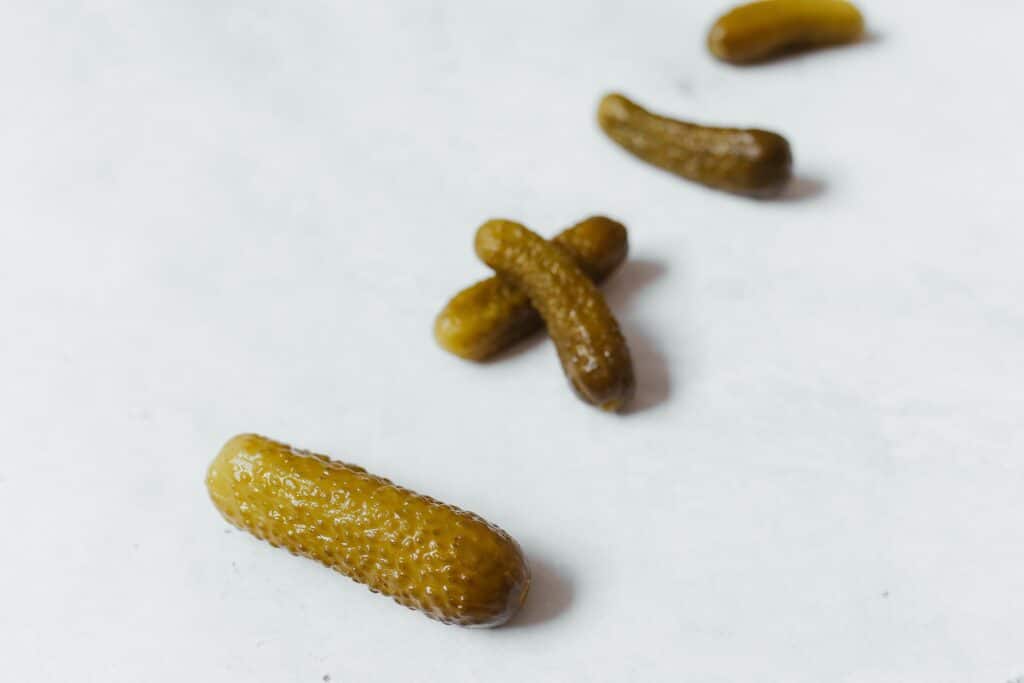
A variety of human dishes use the flavorful herb dill. Although it is frequently added to pizza, there are numerous other uses for it. Cucumber slices and boiled potatoes go particularly well with it. What is suitable and safe for us may not always be suitable and safe for our dogs. Dogs are unable to enjoy many things that people enjoy. Can dogs eat dill?
Fortunately, dill is generally safe for dogs to consume. You need not be concerned if your dog accidentally eats some dill from your garden because it is not poisonous. Dill is safe for dogs to eat even in larger amounts. Having said that, this does not imply that you should give your dogs dill. Everything you need to know about feeding dill to your dog will be covered in this article.
Table of Contents
You may also be interested in: Can dogs drink milk? What about almond milk? 3 types of milks
Benefits of dill for dogs
The tzatziki sauce is the first thing that comes to mind when I think of dill. Yes, that delicious pita, the meat of any kind, and charred vegetable dip made with Greek yogurt. I might also consider potato salad and pickles. (Does your mouth already water?) Dill’s uses as a breath freshener and stomach relaxant may not immediately spring to mind, let alone its antibacterial properties.
But isn’t that what makes food so beautiful? If you find the right one, it might just be what you — or in this case, your dog — need to get better. This interesting little herb, which belongs to the parsley family, may help your dog in one or more of the following three ways:
Digestion
If your dog is a living vacuum cleaner – picking up any food seconds after it falls on the ground – or if the garbage can is his idea of a buffet, it’s a good idea to keep some dill on hand. It’s known as an overall digestive aid, helping with gas, nausea, cramping, and appetite.
Freshening Breath
It’s not all that surprising that dill, a member of the parsley family, would also serve as a breath freshener. Dill’s ability to freshen breath is attributed to its antibacterial properties, which are effective in the mouth for bad breath caused by bacteria and even gingivitis, according to Gregory L. Tilford and Mary L. Wulff in their book Herbs for Pets.
Antioxidant
Vicenin and kaempferol are two antioxidant flavonoids found in dill. While vicenin helps shield cells and chromosomes from oxygen-based damage, radiation, and damage brought on by free radicals, kaempferol has been linked to health benefits including anti-inflammatory, anti-cancer, cardio-protective, neuro-protective, and anti-diabetic. Chronic illnesses like cancer, joint, and organ diseases can develop as a result of free radical damage. Antioxidants are the remedy for unchecked free radicals. Learn more about food’s potential health benefits, free radicals, and antioxidants here. Additionally, dill contains volatile oils like limonene that could promote the production of enzymes that fight cancer (Herbs for Pets).
Can dogs have fresh dill
When the dill seed tea has cooled, give your dog 2-8 ounces of it after adding 1 teaspoon of dill seed to 8 ounces of water. Use unsalted broth instead of water if your dog dislikes the flavor (Herbs for Pets). Always check with your holistic veterinarian if you have any concerns, and use caution around animals that are lactating or pregnant. If you enjoy dill and keep some on hand in your kitchen, you might want to use it the next time your dog experiences gas after garbage surfing or needs a little breath freshening.
Does dill poison dogs?
No. Dill contains nothing that could be harmful to dogs. However, some dogs might have digestive issues. But this isn’t because dill is poisonous; rather, it’s just that they’re eating things they’re not used to. Dill can cause allergies in some dogs. After eating it, they might experience some unpleasant symptoms. It is best to stay away from dill with these dogs. For the vast majority of other dogs, there is no need for concern. Even dill-sensitive dogs won’t exhibit any noticeable symptoms.
Can dogs eat dill in the season? can dogs eat dried dill
Dried dill is the main component of dill seasoning. In this instance, feeding dogs is perfectly acceptable. However, not all ingredients marketed as “dill seasoning” include only dill. Because of this, you must review the ingredient list before deciding whether the seasoning is safe for your dog. These seasonings occasionally contain onions and garlic, which dogs should not consume.
Do dill’s health benefits exist?
There hasn’t been much research done on how dill affects dogs. There are no studies available right now that back up any health advantages that dill is said to have, at least not for dogs. Having said that, dill is said to have a few health advantages for our canine and feline friends.
Dill contains elements that are volatile in oils. In the stomach, many of these have an anti-foaming effect that may help reduce gas. They may also aid in reducing bad breath. Of course, you shouldn’t use them to hide anything of the sort, like decayed teeth. However, a little dill may help if your pet has bad breath.
Intestinal worms may be fought off with ground seeds. Additionally, some people assert that a dill-based rinse can deter fleas. However, no studies have been done to support either of these effects.
You may also be interested in:Can Dogs Eat Honey? 3 Benefits of honey in dogs and how to use it
Can Dogs eat dill?

Yes. Dill shouldn’t harm your dog and might even be beneficial to its health. Of course, dill should not be the only food source for your dog. Dill contains very little protein and fat, two nutrients that they need to thrive. You need not be concerned, though, about your dog eating some dill in the garden.
Dill can be given to your dog without any issues, even though we don’t advise using it to treat any ailments your dog may have.
Can dogs eat parsley

YES! Due to their numerous advantages, dogs can consume herbs like parsley. A dog’s health greatly benefits from parsley’s abundance in important vitamins and minerals. However, dogs should only receive a small amount of herbs.
Can dogs eat pickles

Depending on how they were made, pickles can be safe for dogs to eat or not. Pickles are generally not toxic to dogs, so you can give them to your dog.
Source
Photos source from pexels.com
Related Posts